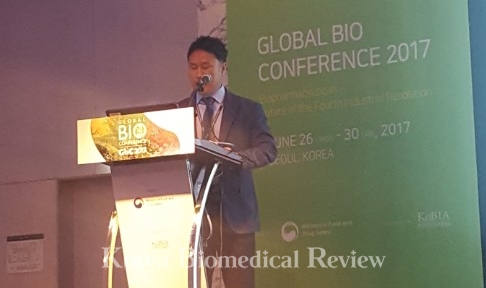“We need to provide a gap in quality systems and quality management for vaccine and pharmaceutical companies in Korea by comparing them with U.S. global companies.”
Ted Yi, director of Janssen Korea of Johnson and Johnson, made the remark in his presentation on the last day of the “Global Bio Conference 2017 (GBC 2017)” at Seoul Intercontinental Seoul COEX Hotel in southern Seoul Friday.
“Korea has been a member of Pharmaceutical Inspection Co-operation Scheme (PIC/S) since 2014 and the quality management is the area that has made the most of a difference,” Yi said. “Quality should be the responsibility of all persons involved in manufacturing.”
He noted that the quality unit must be independent and have the authority necessary to perform quality tasks. Also, quality goals should be set from the top and cascaded to each employee, and the targets should be monitored.

Performance management systems are linked to the compliance metrics and adherence to current good manufacturing practice (CGMP) regulation requirements, and well-defined accountability and responsibility are related to quality and compliance on the job, Yi added.
“Engaging in collaboration is vital throughout the organization for quality- related issues,” Yi said. “For example, departmental and cross-functional meetings will drive the quality and compliance improvement message through the organization and convey compliance improvement activities.”
Stressing that the culture of quality is also an area related to quality management, the Janssen Korea director said there are visible culture elements involved such as behaviors, decisions, works hours and quality programs.
Invisible culture elements are value, attitude, and belief; although they are invisible, these factors make the company grow, he noted. The visible culture of quality is transparency communication and awareness of issues, with sharing lessons learned across departments and sites and leveraging the experience of other counterparts.
“At meetings, communications usually are vertical and less dynamic, and at meetings, some fewer employees ask questions,” Yi said. “It’s important to ask questions because employees can make assumptions based on little information.”
The director pointed out that working hours in Korea are very long and the flexibility of taking vacations are often limited compared to the U.S. “Although it is a difference in culture, comprehensive systems and controls must be in place across the supply chain to ensure that every product meetings appropriate quality standards,” he said.

